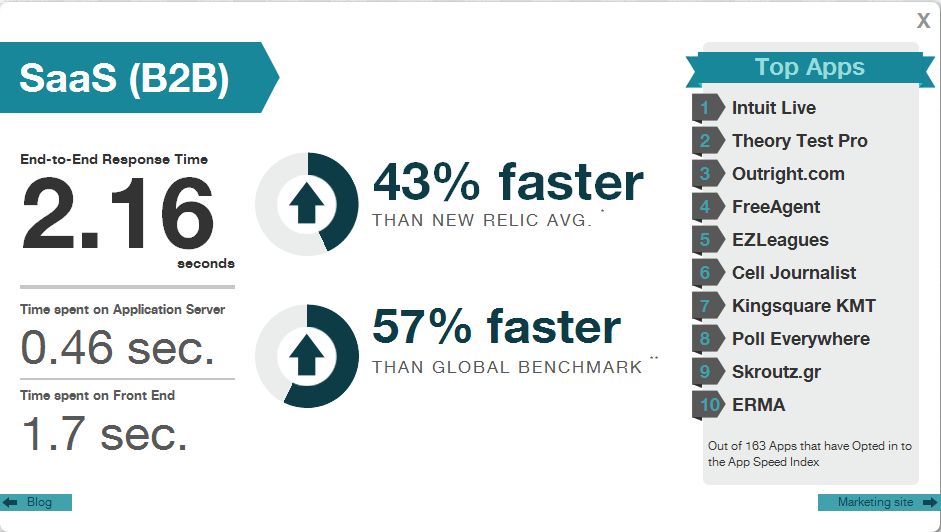
We like New Relic for a number of reasons at RedMonk. Firstly, developers tell us it just works, providing application performance monitoring across cloud apps. Just tick a box from your PaaS provider, and consider your app instrumented. Secondly, New Relic is a data partner for our analytics business; if you haven’t seen the State of The Stacks analysis (languages, frameworks and runtimes) we built using New Relic data you should check it out) . Thirdly New Relic is a client.
At RedMonk we’re spending a lot of time parsing the future of the industry, as data increasingly supercedes code in terms of business asset value. I was talking to some of the guys from Heroku recently and the RedMonk thesis got enthusiastic headnods. I think it was Jesper Joergensen said:
“Yeah, I was talking to a CIO recently and he said software is just the thing you give away in order to collect data”
Another company we work closely with is Spiceworks, an Austin startup founded in 2006. It took the new model to heart early, and executed ruthlessly. Spiceworks gives away LAN asset management software, in return for data from the customer about the infrastructure its running. SpiceWorks then uses that data to target ads from distributors and tech vendors, and has built a great business accordingly. Its not a software company, its a data company, and it’s now collecting data from 2m IT Pros.
Which brings us back to New Relic, with 52 billion daily metrics collected, 652,684 app instances managed, and 25k active accounts.
So what do you do if you can collect data from a bunch of different clouds about app performance and put it all in one place? You create an Application Speed Index for benchmarking purposes., in terms of end to end response times, which looks like this. The app is still in beta, and I suspect only smaller companies are making their data public but over time its very possible startups would begin to compete to appear on the index. The B2B index is interesting though – Intuit Live leads, with Freeagent, a local UK startup also in the top five. The data of course has a value to New Relic clients, whether or not they are willing to share their data identifiably.
Its early for the new service, but the approach seems right on the money. As someone that has been tracking Systems Management software for 17 years now, and advised many vendors to try and persuade customers to share their performance data for aggregate comparison, its great to see the idea being implemented. The cloud has been a significant contributing factor in resetting corporate expectations about sharing traditionally proprietary information. Keeping information about tech adoption secret is folly. We’re going to see a lot more models like SpiceWorks and New Relic.
Aaron Rudger says:
August 22, 2012 at 11:19 pm
James,
Excellent and worthy recognition for New Relic’s aggregation of performance data based on their customers’ real user data.
Of course Keynote (my employer) and Compuware have also freely published performance indices for some time. These indices have been available for reference online, and for customers within the Keynote monitoring app. Now, we’ve also opened access to the flagship Keynote Business 40 programmatically via API to everyone. (See this post: http://goo.gl/NTTbg) So you can benchmark inside ANY monitoring app and use this reference data interesting ways.
How does this drive value for Keynote? We recognize that companies need big performance data now more than ever, but don’t need the big systems management vendors to bring it all together for them. Open access validates the core value Keynote offers–mobile and Internet performance from the end user perspective.
jgovernor says:
August 24, 2012 at 9:49 am
hey thanks aaron. nicely introduced! i will check out the keynote stuff
Community News: Performance Metrics from a Social Network and More | New Relic blog says:
August 24, 2012 at 3:59 pm
[…] revisits the browser wars to see which one dominates at work and at home.*James Governor’s argues it’s the data, stupid.* Joshua Bixby asks how do you calculate developer ROI?* Our own Graham Dumpleton shares his […]